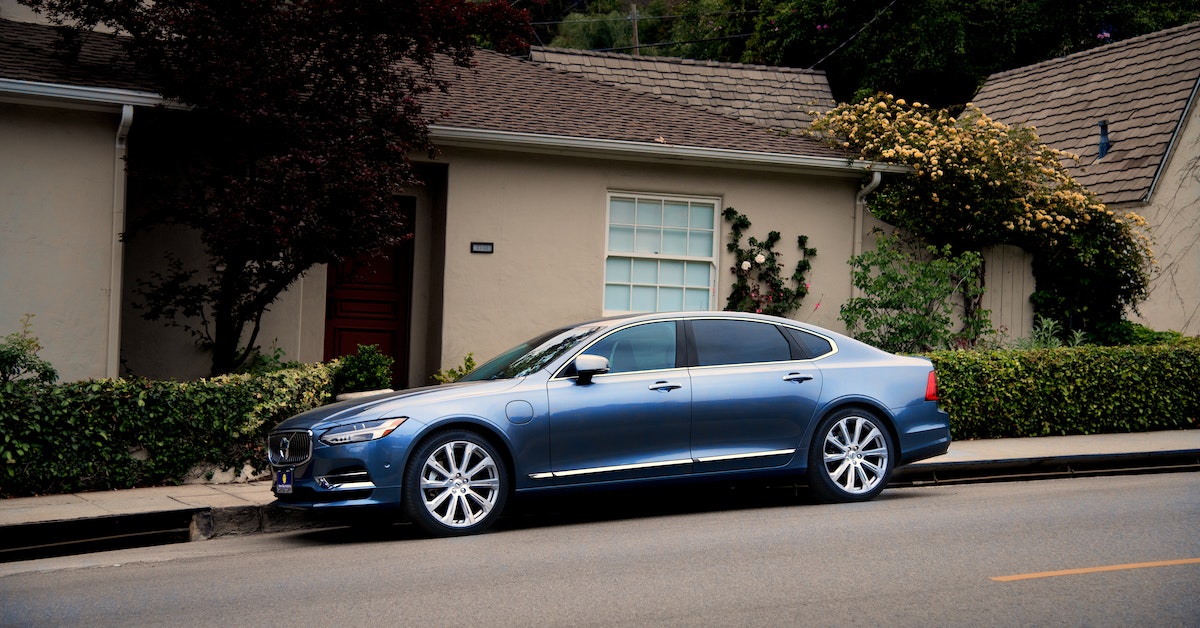If your spouse declares that you're divorcing you, your first thought might not be whether you get to keep your vehicle. However, as things unfold, you'll inevitably wonder: who gets the car after a Texas divorce?
The answer is: it depends. You'll first want to determine if the vehicle is separate or community property. If it's community property, you and your spouse can work out who gets what car in a divorce settlement. If you can't reach an agreement, a judge will decide for you.
Let's take a look at everything you need to know about what happens to your vehicle during a Texas divorce.
There is no set answer as to who gets the car in a Texas divorce. You and your spouse can come to an agreement through a settlement agreement or a judge can divvy up your property, including your vehicles.

The first thing you’ll want to determine is whether your car is considered community or separate property.
If you bought a car before the marriage and only your name is on the title and loan, it is considered separate property. However, if you made car payments using community funds during marriage, your spouse can ask to be reimbursed for the community funds that were used to pay for personal separate property.
Any vehicles that were purchased during the marriage, regardless of whether both names are on the title, is considered community property.
If one spouse is awarded a vehicle in the divorce decree, they are usually also responsible for the associated debt. If you and your spouse bought a car with financing during your marriage, the car is considered community property and the debt is also considered marital debt.
Divorce courts can choose to award one party a vehicle along with the balance owed on the loan. That being said, it isn’t within their power to remove the name of the other spouse from the auto loan.
What this means is that the other spouse can still be held responsible for payment by creditors if the bills aren’t paid. The only way to get off of an auto loan is for your ex to refinance the loan in only their name.
When it comes to splitting your property and debt, the ideal scenario is for you and your spouse to come to an agreement on how everything will be divvied up. You can then fill in the final divorce decree in a way that reflects the agreement you have reached. Unless your marital and personal estates are very simple, it’s probably a good idea to talk to a lawyer during this part of the process. Any couple with property of significant value (such as a retirement account, business, house, or other financial accounts) will want to have a divorce attorney review their divorce decree before finalizing the divorce.
(Are you committed to the idea of representing yourself in your divorce? Make sure you read this article about getting divorced in Texas without a lawyer.)
If you don’t work with an experienced lawyer at this part in the process, it’s possible you could make costly mistakes. Even though hiring a lawyer in Texas can be expensive, you might find that it will ultimately save you both money and time in the long run.
Let’s look at some of the options available to you when it comes to splitting up your vehicles during a divorce in Texas.
If your car is only in your name and the auto loan for the vehicle is in your name only and it is agreed in your divorce settlement that you will keep the car, you don’t have to take any action after the divorce except to keep your Final Decree of Divorce someplace safe.

Since you won’t be changing ownership of the car or the name on the auto loan, you don’t have to contact the Department of Motor Vehicles or your lender.
If you have an auto loan at the time of your divorce that is in both your name and your spouse’s name, you will likely want to refinance the loan into your name when you are awarded the vehicle as a part of the divorce decree.
When you refinance your loan, it means that only you are responsible for repaying the debt. Your spouse will no longer be liable and tracked down by creditors if you were to default on the loan.
Sometimes, a divorce decree will order a spouse to refinance a vehicle.
However, refinancing an auto loan requires that you have enough income and sufficient credit to be approved.
If both spouses’ names are on the title of the vehicle you are awarded in a divorce but there isn’t any outstanding debt, you will most likely want to change the title so it has only your name on it.
To do this, you will need to go to your local Department of Motor Vehicles with your Final Decree of Divorce and any other relevant documents. You can show the DMV employee the divorce decree that states that you have been awarded sole ownership.
The title can then be changed to take your ex-spouse’s name off and only state your name. When you don’t have a loan on your vehicle, it can make the whole process much more straightforward. That being said, many people who own newer vehicles do so with the help of an auto loan.
This is usually not an ideal option, but many people go this route regardless. A divorce is a process where you are separating yourself from your partner, which includes financial considerations. For this reason, it is best to make sure that any vehicles you are awarded in the divorce are solely owned by you and any associated debt is solely your responsibility.

There are a number of reasons why someone might choose this option despite the fact that there are better options available.
For one, they might not be able to pay off the loan from their savings or from the proceeds of the divorce. On top of that, they might not be able to refinance the loan in their own name because of a low income or a less-than-perfect credit score.
When this is the case, a person might choose to keep the vehicle so they have a mode of transportation while the title and the loan remain in both parties' names.
Usually, this will work as follows. The divorce decree will order the person that is awarded the vehicle to make all of the car payments on the loan. The title will still have the other spouse’s name on it until the vehicle is either sold or paid off (if the latter option occurs, you could then have the title changed at the DMV.)
As you might imagine, it isn’t ideal for your ex to retain the rights of ownership to property you were awarded in a divorce. Both you and your spouse likely won’t love this option– they remain responsible for the loan if you default while also maintaining some claims to ownership.
If you and your spouse don’t have a loan on a vehicle, the whole process gets a lot easier when one party is awarded the car in a divorce.

All you have to do is transfer the title on the car from one spouse to the other by bringing the final decree of divorce and other relevant documents to the DMV.
All of the property that you and your spouse have when you get divorced is considered community property except for the separate property owned by each spouse.
Community property might include:
Which spouse's name is on the title or which spouse's earnings were used to purchase an item doesn't matter except in cases where property can be proven to be separate (or if the spouses agree it is separate property.)
On top of the property you've accumulated marriage, there is also community debt to be concerned with. This is the debt you took on during the marriage.
It's worth noting that there are some exceptions to these rules. It's best to talk to a lawyer if you have questions about whether property or debts fall into the category of community property.
Separate property in the state of Texas includes:
The spouse that is claiming property belongs solely to them will need to prove that it is separate property unless both spouses agree. The property will be considered community property if the spouse cannot adequately prove it to be separate property and the other spouse doesn't agree.
Additionally, there is separate debt to be concerned with. This is debt that one spouse took on before they got married.
A car is treated in the same way as other property when it comes to determining if it is considered community or separate property.
For example, if your parents gave you a car as a gift, this is considered separate property. Similarly, if you bought the car before you got married, it is your separate property.
However, if you make car payments using community funds, you might have to repay your ex-spouse as a part of the divorce proceedings.
If you purchased a car during the marriage, it is considered community property in most cases. At the same time, any loan that is taken on during marriage will be considered marital debt.
Again, the best case scenario is for you and your spouse to reach an agreement regarding property and debt division, including who gets what car. If you can’t, a judge will decide who gets what and who is responsible for various debts. Here are some of the considerations you might take into account or a judge might take into account when making these decisions.
If a judge is deciding who will get a vehicle and the family car has positive equity, they might order you to sell it. Then, the proceeds from the sale would be divided between the spouses based on the order in the final divorce decree.
In this instance, you do have an option if you want to keep the car yourself. It might be possible to pay your ex-spouse the amount of money they would receive if you were to sell the car and take ownership of the vehicle.
It’s not unusual for people to have a personal attachment to a vehicle, and it might be that one spouse has a deeper connection with one of your cars than the other. This can be used as a negotiating tool during the settlement process, where you might be able to waive your right to the car in order to receive something you personally find more valuable, such as full ownership of a brokerage account, an art collection, or your favorite pieces of furniture.
Another consideration is who genuinely needs to use the car more out of the two spouses. Generally, a person that becomes a custodial parent will have a greater need for a vehicle than a person that becomes a noncustodial parent.
Even if there aren’t children involved, there might be a discrepancy between each of your needs for the vehicle. For example, one spouse might need to commute to work five days a week while the other works from home.
Of course, you might not necessarily be obligated to give the family car to your spouse simply because they technically need it more. However, it might be useful during divorce negotiations and could help to make the divorce process more amicable.
There are a lot of things to consider when it comes to property and debt division in divorce, but who gets what car is likely one of the most practical issues on the table next to who gets the house. Let’s look at some additional questions that are frequently asked about this topic.
If you weren’t awarded a vehicle in a divorce but your name is still on the loan and the title, the best-case scenario is that your spouse refinances the loan. If they aren’t able to refinance, the next best option is to sell the vehicle. Even if you owe more on the loan than the vehicle is worth, you might choose to pay the difference using a personal loan and allow both parties to purchase their own vehicle separately.
Even though the debt associated with the vehicle is also awarded to the person that is awarded the car, the lender doesn’t care about that at all. All they care about is that an agreement was made regarding loan repayment. Your relationship with the lender doesn’t change just because the divorce decree states that your spouse is responsible for making the car payments.
If your spouse continues to make timely payments on the loan until it is paid off, this won’t be a huge problem for you. However, if they don’t, you could end up being responsible for the rest of the loan and have your credit damaged.
Sometimes, a couple will have already separated their personal belongings sometime before the divorce is finalized. This makes quite a bit of sense when you think about it– after all, the typical divorce can take anywhere from four to twelve months to finalize.
When it comes to things like clothing and furniture, you most likely won’t need to list this type of property in the divorce decree. The final divorce decree will award each party the personal belongings that are in their respective care, control, or custody unless there are orders that specifically state otherwise.
That being said, any property that is of significant or substantial value will need to be included in the final decree of divorce, such as real estate, jewelry, businesses, financial accounts, and vehicles.
Each vehicle that you and your spouse own will need to be included in the divorce decree with their respective vehicle identification numbers (VIN). You can usually find this number by looking on the vehicle dashboard in the lower-left corner in front of where the steering wheel is.
It’s easiest to read this number by looking through the windshield from the outside. This number will also be listed in insurance documents, the vehicle title, and potentially in the owner’s manual.
If a vehicle has been awarded to you in the Final Divorce Decree that is in both of your names, you will want to go to your local county tax office with a certified copy of the divorce decree. You’ll be able to apply for a title for the vehicle.
As is always the case with this type of trip, there are a number of documents you’ll want to bring with you. For example, you’ll want to bring proof that you have current insurance on the vehicle as well as the application fee for the title.
It’s a good idea to look at the county clerk’s website or give them a call to learn the amount of the fee and the specific documents you will need to bring.
If the vehicle isn’t included in the divorce decree but you intend to transfer the title into your own name, you will need a properly assigned title. Your ex-spouse can either sign a power of attorney or sign the back of the actual title in order to assign a title to you.
FYI, you can check the tax-exempt box on the application form for the title if you are transferring a title due to divorce. You shouldn’t have to pay taxes on this type of title transfer.
If both your name and your spouse’s name are on the car loan and they are keeping the car, it’s perfectly reasonable that you would want to have your name removed from the loan. After all, when your name is on the auto loan, you will be responsible for the debt if your ex-spouse stops paying.
In order to get your name off the loan, your spouse will have to refinance the loan. If they are either unable to qualify for the loan on their own or are unwilling to refinance their debt, the loan will still be your responsibility. If you find yourself in this situation, you could talk to your lawyer about the different options you have.
Wondering what forms you're going to need to file for divorce in the Lone Star State? Check out this guide to Texas divorce forms.
If your name is still on a car loan after divorce that is attached to a vehicle awarded to your spouse, it's possible that repossession is an option if they fail to make payments toward the debt. This is something you will want to talk to an attorney about because they’ll be able to look at the language in the final divorce decree to see if repossession is an option.
If you want to include a provision of this sort in your final decree of divorce you will probably have to work it out as a part of the negotiation process. This type of language usually isn’t written into a judge’s decision as a part of a divorce trial. However, if you are able to negotiate with your spouse to include this type of language in the divorce decree, there are two primary benefits:
Again, you shouldn’t expect that this option is a given but instead should specifically negotiate for this during the process of reaching a divorce settlement agreement.
When you and your spouse decide to get divorced, your first thought likely isn’t about your car payments. However, this is one of the many financial considerations that you’ll need to address as a part of the process.
If a car belongs to your spouse as separate property (meaning he or she bought it before the marriage or it otherwise qualifies as separate property) and the title and auto loan are solely in his or her name, then the responsibility for making car payments is most likely left to your spouse.
If both of you own the vehicle together, though, the lender will hold both of you responsible for making payments. In the eyes of the court, you are both responsible for making these payments until that responsibility is altered by the courts.
It doesn’t matter if you never drive the car or if your name isn’t even on the title– if you’ve been making payments on the car and the note is in your name, you most likely have a legal responsibility to make the regular payments towards the loan.
During the temporary orders stage of a divorce case, you and your spouse will divvy up how bills will be paid during the period of time after divorce has been initiated but before it has been finalized. However, there’s a good chance you could still be responsible for making car payments during this time even if the vehicle is the separate property of your spouse.
If you and your spouse can’t come to an agreement about how your property and debt will be divided, including your vehicle and any loans associated with it, you will be leaving the matter up to a court. A judge will divvy up your property and your debts in a “just and right” way. This often means your property and debts will be divided 50/50, but that isn’t always the case.
There are so many different elements to divorce it can be completely overwhelming. First, there is the emotional aspect, which can be incredibly difficult to deal with on its own. On top of that, though, there are also the financial aspects of how your property and debts will be divided as well as how you will deal with the costs of divorce.
When you first realize that your marriage is ending, you likely have more questions than answers. The legal system is complicated, and they don't necessarily make it easy to navigate on your own.
Unless you're getting a simple divorce and you and your spouse don't have much in the way of assets or debts, you'll probably want to work with a lawyer during the process.
However, that doesn't mean you can't do research on your own. The more you know about the divorce process, the more prepared you'll feel for every step along the way.
If you're searching for more resources about getting divorced in the Lone Star State, you've come to the right place. Be sure to check out the rest of our blog at TexasDivorceLaws.org.